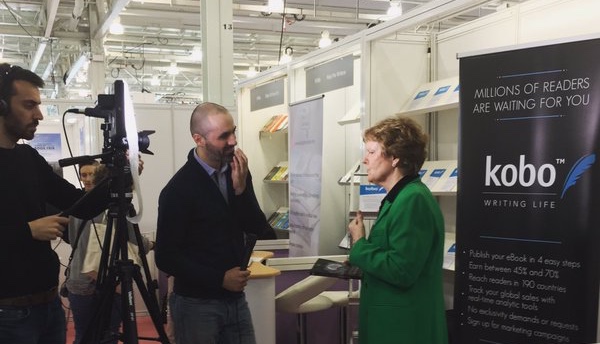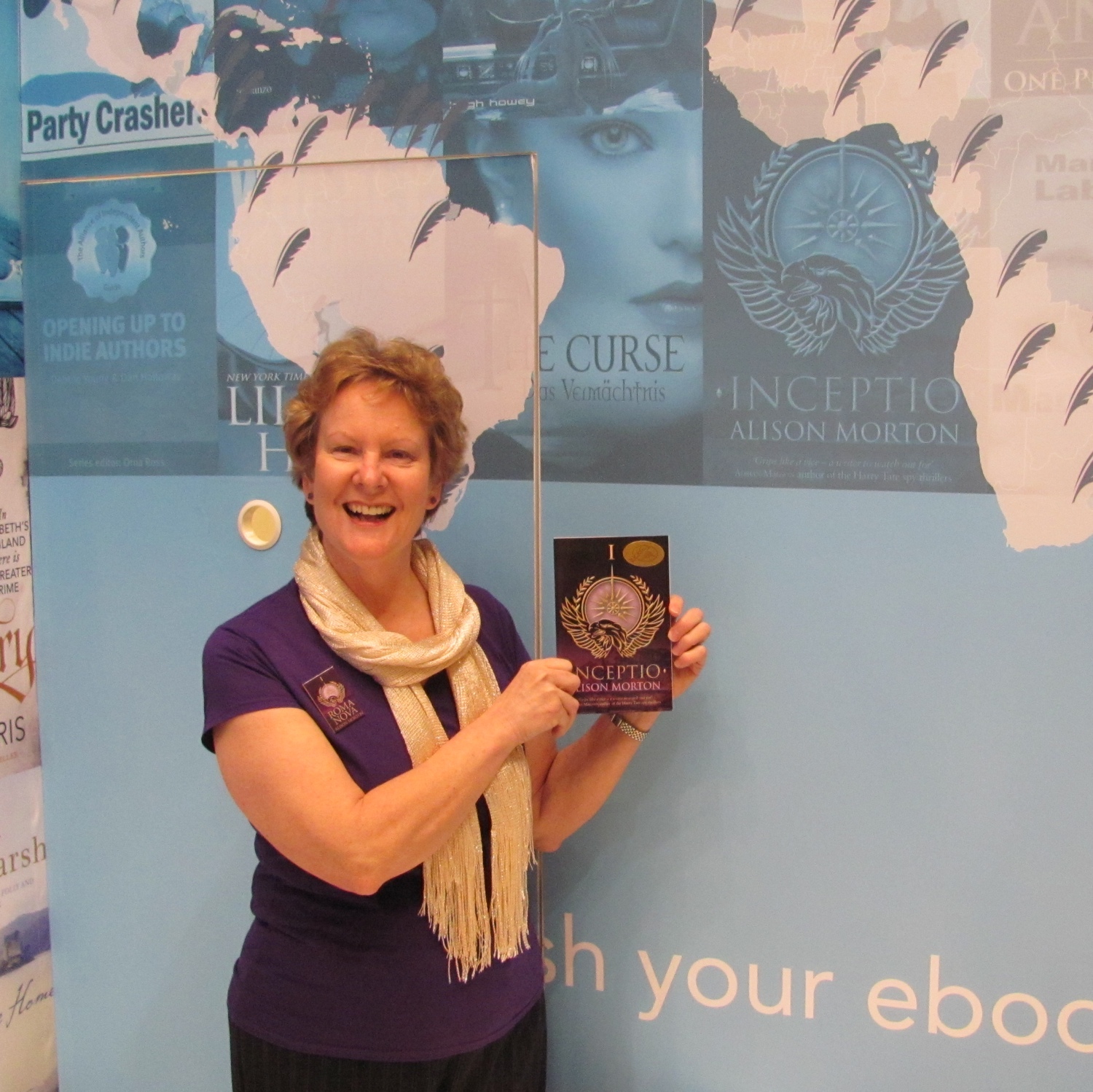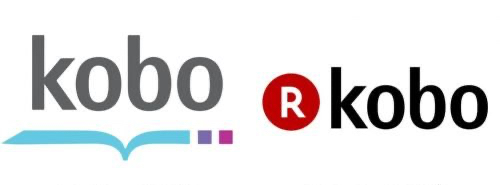Six years ago, I wrote a little post about Amazon not being the only way to read ebooks. From the very first novel I published in March 2013 (INCEPTIO), my books have been in the catalogue of a variety of retailers. Commercial monopolies/market dominators somehow disturb me…
However, I hold my hand up to having automatically defaulted to the apparently obvious choice of an Amazon Kindle as my eReader.
So what are the other options?
These days, I publish with Amazon (When selling your books, who wants to ignore the world’s largest online bookshop?), but also on Apple, Kobo and Barnes & Noble Nook. I haven’t quite got the hang of Google Play, so we’ll leave that aside.
But being entirely selfish, as an author I find Kobo the friendliest and easiest to use. Perhaps it’s because they’re Canadian. 😉
So who are Kobo (Corporate stuff, but interesting)?
Kobo as a business sells ebooks, audiobooks, eReaders and tablet computers and is headquartered in Toronto, Ontario. It originated as Shortcovers, a cloud eReading service launched by the Canadian bookstore chain Indigo Books and Music in February 2009. In December that same year, Indigo renamed the service ‘Kobo’ and spun it off as an independent company. In 2011, Kobo took on the WH Smith ebook business in the UK and FNAC in France. Rakuten acquired the company January 2012. On 23 May 2016, Waterstones announced it had sold its ebook business to Rakuten Kobo Inc.
In 2018, Kobo and Walmart contracted to allow the latter to sell Kobo audiobooks, ebooks and eReaders in the U.S. This was the first venture into ebooks for Walmart which also began selling the Kobo eReaders. Walmart installed eReader stations in over 1,000 stores.
So Kobo now service a significant slice of the ebook market.
A nice touch was that during the Covid-19 pandemic, Kobo worked with governments, publishers, and retail partners to provide more than 20 million free books through the ‘Stay Home and Read’ programme. The company reported that romance and mystery/thriller novels continued to be bestsellers during the pandemic, and that there was a rise in books for children and young adults.
What does this all do for authors?
On 17 July 2012, Kobo launched a self-publishing platform called Kobo Writing Life (KWL). (Hooray!) Two lovely things: apart from benefitting from one of the easiest upload and reporting processes around, authors can track sales in real time, and use Kobo’s learning centre which guides newcomers to digital publishing.
The best thing? Authors can upload and sell ebooks globally and also enrol them via Kobo into the Overdrive library buying system.

Me looking serious while doing an interview at the 2016 London Book fair with Kobo Writing Life’s UK manager Diego Marano
In 2017, Kobo launched its unlimited audiobook and ebook subscription service called Kobo Plus; INCEPTIO, CARINA, PERFIDITAS and SUCCESSIO are enrolled in it! Then in 2019, KWL began offering self publishing opportunities for audiobooks. Have I mentioned how easy the Kobo dashboard is for even the newest author to use? As of May 2021, Kobo Plus offered 599,000 ebooks and 94,000 audiobooks to subscribers on a read/listen as much as you like. (Update January 2023: Kobo now offers over 1.3 million eBooks and 100,000 audiobooks. Source Kobo own website))
This is all very well for the authors, but what about us as readers?
If you’re into crosswords, you’ll have seen Kobo is an anagram of ‘book’. Quite clever! But is Kobo any good as an alternative to Amazon and its Kindle eReaders, ebooks and audiobooks?
It’s reckoned that Kobo currently offers around six million ebooks and audiobooks to millions of customers in 190 countries, so no shortage of reading material. I’ve sold in 48 countries this year with Kobo and not just in the bigger markets like Canada, UK, US and Australia, but also in Kazakhstan, Peru and Botswana! Kobo books seem to reach readers in countries that other retailers cannot reach (as they say).
Apart from selling its own reading devices from entry level to very sophisticated (Nia, Aura, Clara HD, Libra, Elipsa, for example). I found this in-depth article from The Wired Shopper comparing Amazon and Kobo eReaders very enlightening.
Kobo offers free reading applications for Windows and MacOS computers, Android and iOS smartphones. You can browse, search, buy and read your ebooks on just about any device you choose – from select Smartphones, tablets, computers, eReaders and more.
Kobo allows you to read ebooks from other platforms as long as they’re in the open standards that Kobo service supports, like ePub and PDF, plus it seems you can send eGiftCards across frontiers, (unlike Amazon!)
All in all, the range and facilities provided by both retailers seem pretty similar. I’m about to purchase a Kobo eReader myself to see how it all works. I’m not throwing my Kindle away, but I’m very interested both as author and reader to experience reading life untethered from Amazon.
(I have written this article entirely at my initiative; I have not been paid by Kobo!)
Update December 2022: Alison Morton is the author of Roma Nova thrillers – INCEPTIO, CARINA (novella), PERFIDITAS, SUCCESSIO, AURELIA, NEXUS (novella), INSURRECTIO and RETALIO, and ROMA NOVA EXTRA, a collection of short stories. Audiobooks are available for four of the series.Double Identity, a contemporary conspiracy, starts a new series of thrillers. JULIA PRIMA, a new Roma Nova story set in the late 4th century, is now out.
Find out more about Roma Nova, its origins, stories and heroines and taste world the latest contemporary thriller Double Identity… Download ‘Welcome to Alison Morton’s Thriller Worlds’, a FREE eBook, as a thank you gift when you sign up to Alison’s monthly email update. You’ll also be among the first to know about news and book progress before everybody else, and take part in giveaways.















Leave a Reply